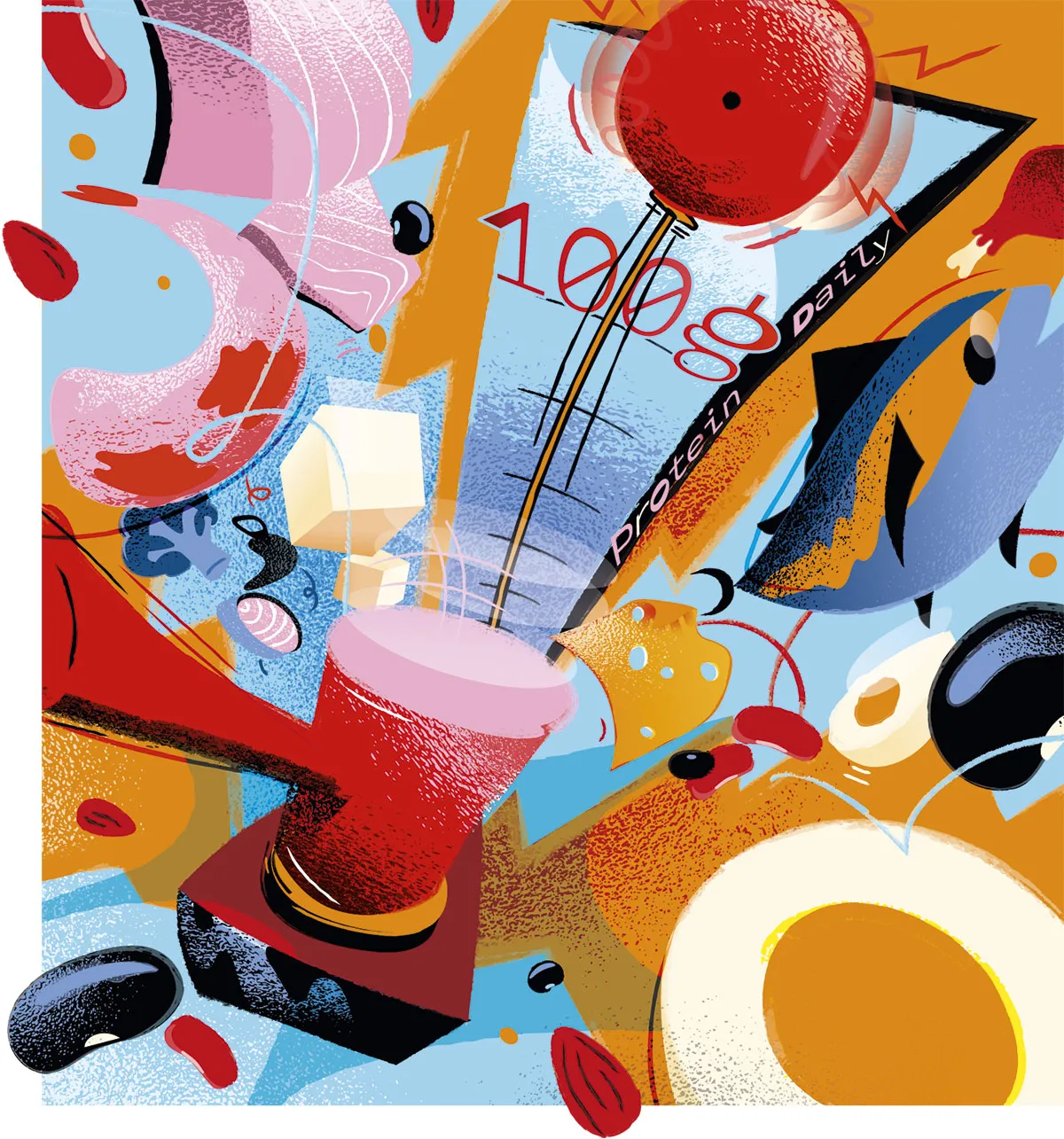As you have probably noticed, in the world of diets there is an ongoing battle between fans of low-fat foods and those who prefer to embrace a low-carb lifestyle. Yet as I discovered when I began researching my latest book, The Fast 800 Keto, the biggest driver of appetite is that other macronutrient: protein.
Eggs, fish, meat and tofu are all rich in protein and help build muscles, enzymes and much of the infrastructure of our bodies; eating enough of it is absolutely vital for growth and repair. And as two leading Australian academics, Prof David Raubenheimer and Prof Steve Simpson, argue, lack of protein is one of the major drivers of the current obesity epidemic.
If you don’t get enough protein in your diet, then you will develop cravings and overeat in a largely unconscious attempt to hit critical protein targets. They say that we need to consume around 15 to 20 per cent of our daily calories in the form of protein. This amounts to around 100 grams of protein, if you are eating the normal 2,000 to 2,500 calories a day.
According to their ‘protein leverage hypothesis’, the main reason we are getting fatter is because we are surrounded by ultra-processed foods that are typically rich in fats and carbs but low in protein, so we overeat to try and satisfy our protein hunger.
They first demonstrated the power of this theory with an elegant experiment published in 2011 in the journal PLOS One. They recruited 22 healthy volunteers and on three separate occasions the volunteers were invited to stay in hotel-style accommodation in Sydney University for four-day visits.
While they were there, their meals were provided, but they also had access to lots of different snacks. The volunteers didn’t know the real purpose of the experiment and they weren’t told that their meals, although matched for calories, contained different levels of protein.

On one of their four-day visits, the meals contained 10 per cent protein, on the next it was 15 per cent and on the third it was 25 per cent. Would this make any difference to how much the volunteers ate? Well, without realising it, the volunteers ate, on average, 210 more calories per day when they were on the low-protein diet than they did on the high-protein diet. Do that on a regular basis and you would soon find yourself piling on the weight.
The volunteers also reported feeling hungrier a couple of hours after eating the low-protein breakfast, despite eating the same number of calories as on higher protein days. That is certainly what I find. When I eat eggs or fish for breakfast, I stay full until lunchtime. But if I eat the same number of calories in the form of cereal or toast, I am craving a snack by mid-morning.
The current government guidelines are to eat around 50g of protein a day, which I think is way too low, particularly for people as they get older (you need more protein after the age of 60 because your body is less able to absorb and utilise it).
For high-protein breakfast inspiration, click here.
- This article first appeared in issue 374 ofBBC Science Focus Magazine–find out how to subscribe here
Read more from Dr Michael Mosley: